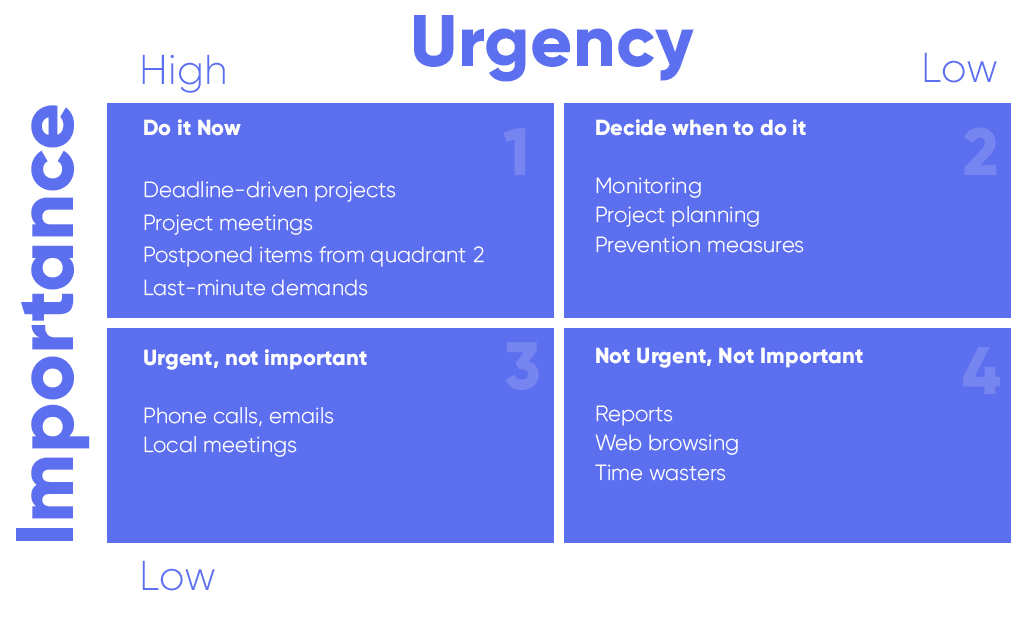
The project progress chart is high-impact.
Impact: how key this task or feature will be to the project as a whole.įor example, let’s look at two common tasks on a project manager’s plate: charting project progress and answering emails from the CTO. This type of project priority matrix has two arms: Table: Example impact/urgency style project priority matrix Tasks not relating to project or position These two aspects of ‘important’ often get conflated, so deliberately separating them can be very beneficial to a project. You can use this type of matrix to map how much effect a task or feature will have against its time-sensitivity. Base your roadmap development on this matrix. Come to a consensus on which factors to constrain, accept, and enhance. Talk about what you all want the project to achieve. You should create this matrix before you start to develop a roadmap for the project. This is a very simple tool, but it requires good information to get good results. RESOURCES PRIORITY MATRIX HOW TO
How to create a time/performance/cost matrix
Enhance: Actively work to increase this factor. Accept: Let this factor be as large as necessary. Constrain: Actively work to decrease this factor. This matrix maps time, performance, and cost against three actions: Also, a high-quality product might result, but behind competitor products or at a cost that most of the target market don’t want to pay, leading to poor sales. For a start, at some point you’ll hit diminishing returns: extra money or time only slightly improving quality. But it’s rarely useful to just throw time and money at a project. More money will also often allow better performance. Typically, you’ll get a better level of performance if you allow more time for the project. These three priorities interact and compete in any project. Table: Simple example of a project priority matrix Cost: how much the project will cost the company or how much the end product will cost the consumer. 
Performance (or scope): how many features, or the level of quality, in the project.Time/Performance/Cost Project Priority MatrixĪ super simple version of a priority matrix maps three basic, competing priorities in any project: Which area of a large project requires the most attention.

Which feature your team should start next.Use a project priority matrix when you need to decide: It can also be used to prioritize projects themselves, although opinions are mixed on whether this usage is a good idea. A project priority matrix – also known as a prioritization matrix – can help you to work out and negotiate priorities for a project.






 0 kommentar(er)
0 kommentar(er)
